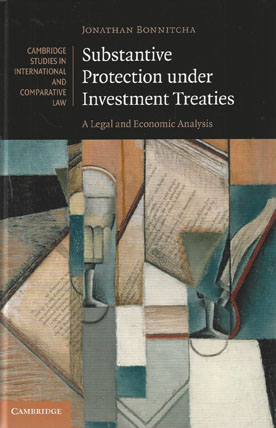
Substantive Protection under Investment Treaties provides the first systematic analysis of the consequences of the substantive protections that investment treaties provide to foreign investors.
It proposes a new framework for identifying and evaluating the costs and benefits of differing levels of investment treaty protection, and uses this framework to evaluate the levels of protection for foreign investors implied by different interpretations of the fair and equitable treatment and indirect expropriation provisions of investment treaties.
The author examines the arguments and assumptions of both supporters and critics of investment treaties, seeks to test whether they are coherent and borne out by evidence, and concludes that the 'economic' justifications for investment treaty protections are much weaker than is generally assumed.
As such, the 'economic' objectives of investment treaties are not necessarily in tension with other 'non-economic' objectives. These findings have important implications for the drafting and interpretation of investment treaties.